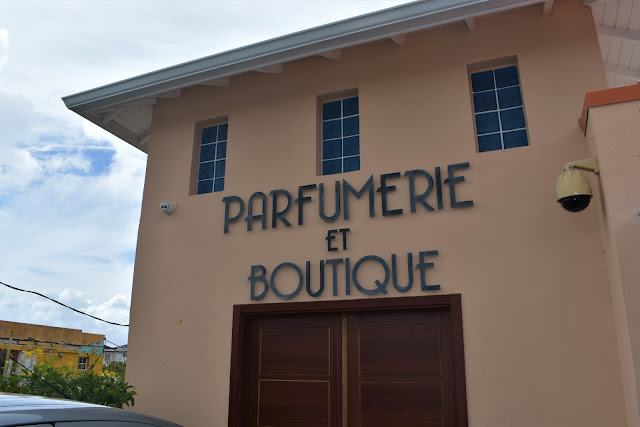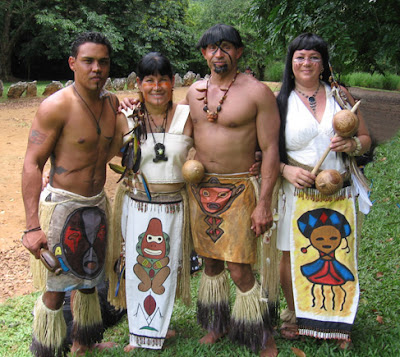Orixa Chic
It's often said that there's no line between the sacred and the profane in Brazilian culture and I really witnessed that when I shopped there. It didn't matter if I was perusing a beach side vendor's cart, a stylish Rio boutique or a cluttered airport shop, there were always kitschy examples of the candomble religion. Most of the T-shirts, magnets, statues and paintings that I saw were splashed with images of the candomble orixas, or deities. Iemanja's mermaid tail waved on dozens of blue t-shirts and tiny sculptures of Oxossi brandishing his bow filled the shelves of many stores. I suppose this is similar to crosses and rosaries flaunted as fashion statements in the U.S. but it threw me off balance. These trinkets are clearly designed for tourists but was it crass or disrespectful to buy souvenirs that display a religion that you don't belong to? I've seen lunchboxes decorated with Krishna, the Hindu deity and hoodies embroidered with Tibetan prayer flags and I thought they were both in poor taste. Would I be any better with a shirt outlining the 12 main orixas?
I pondered this until Claudia, an expert on candomble and Bahia culture, presented me with a gift as I left a Bahia cafe. It was a sunny yellow, hand-painted shirt that displayed Oxum, deity of beauty and fresh water. She told me that candomble followers would never wear something that blatantly announced their personal orixa but that it was okay for visitors to buy an item that revealed their love of Brazilian culture. Taken from that perspective, I felt more comfortable. After Claudia explained some of the orixa associations, I bought two doll magnets outfitted in bright pink and purple, symbolizing Iansa, deity of the wind and Nana, deity of swamps and unfathomable wisdom. In the Mercado Modelo, I discovered small, glittering paintings of Oxum and Xango, deity of thunder and lightening. I think these souvenirs do represent the complex nature of Brazilian culture--the beauty, nature and spirit that seem to dwell in all that's significant to it.



Comments
i have a lot of gear that i would never wear in the countries in which i bought them, but sport all over the place otherwise.
sometimes, i have to keep track of what i bought in what country. i left a lot of gear in senegal, thank god, but here in south africa, most of the things i sported in west africa are sported when i am in the street.
it marks me, unmistakeably, as kwerekwere, but i really don't care.
I've been meaning to comment on your spot for a while now, but, you know...life gets in the way sometimes.
Despite having been in Salvador, and parts of Venezuela and the DR where worship of the orixas/orishas is widespread, and I have yet to find out what my personal guardian is. I guess maybe I'm afraid of playing with fire (just hearing the music of candomble/santeria ceremonies moves something within me).
Thanks for stopping by and I'll definitely be dropping in more regularly (and checking on the answer to your question about Palenque here in Colombia).
...Fly Bro